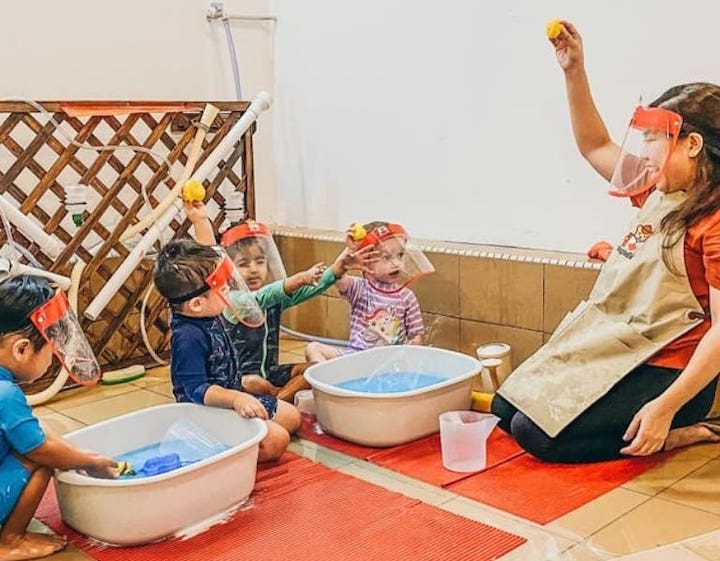
Do you find yourself doing things for your child because it’s just easier and less messy than letting them do it themself? Here’s why letting kids become independent is so important
We speak to Rupal Arora, Director of MapleBear West Coast and Adjunct Lecturer at the National Institute of Early Childhood (NIEC) who gives us an insight into how important it is to teach kids to be independent from a young age.
 Rupal Arora discusses the many from self-confidence to developing a growth mindset, how MapleBear West Coast encourages independence in even the littlest students and what you can do at home to nurture your kids to be more independent.
Rupal Arora discusses the many from self-confidence to developing a growth mindset, how MapleBear West Coast encourages independence in even the littlest students and what you can do at home to nurture your kids to be more independent.
I believe our role as educators is to develop confident, adaptable and creative young people, which is why at MapleBear West Coast we promote independence in our children. In the early years context, an independent child is a child who is self-directed and self-regulated so they are able to express their needs, manage their emotions and build relationships with peers and adults.
What are the benefits of teaching kids independence from a young age?
There are many benefits of promoting independence in children from a young age. Being independent builds children’s social and emotional health, and they exhibit positive behaviours and skills such as listening well, following directions, having close relationships, caring about friends, showing empathy, and being able to negotiate during play. As children practice independence, they will make mistakes and learn from them. It is these teachable moments that build a growth mindset in children.
An independent child can control or regulate their behaviour and their emotions. This promotes a sense of self-efficacy that motivates a child to enjoy the process of learning. Young children gain self-confidence when they can accomplish a simple task independently.
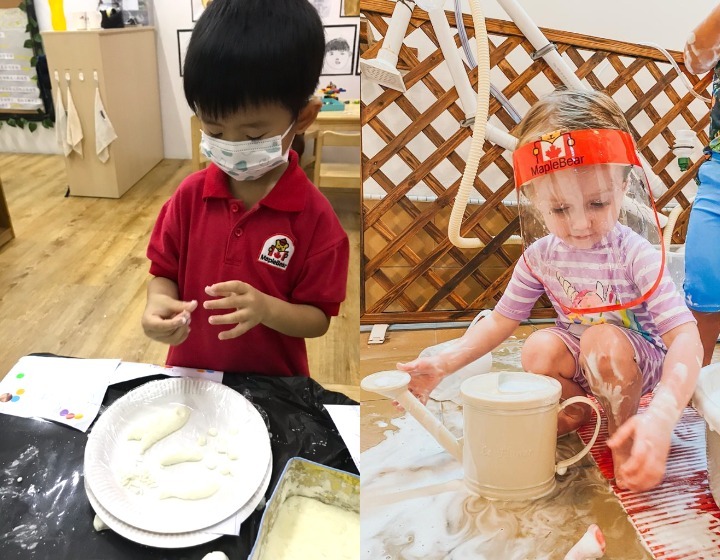
How does MapleBear teach children to be independent?
Our children’s social and emotional health is at the core of our program and every day our educators scaffold them in the following ways:
- By observing children during play, activities and routines and supporting them. For example, if a friend is snatching their toy, then our educators will help the child express themself and ask for the toy back. However, we are mindful not to control children’s play and we allow children to resolve their conflicts with friends.
- By having simple rules on sharing, taking turns and waiting quietly. This builds patience and regulation in a safe way.
- By explaining the consequences of inappropriate behavior. For example, if they do not pack away the toy they are playing with, then they will not get a new toy.
- By maintaining predictable schedules and routines, such as laying mattresses, reading time, or mealtimes.
- By allowing time for children to do simple tasks like packing away toys, cleaning tables, arranging books, and keeping masks in cubbies.
- By building social confidence through allowing children to choose groups or peers to play with and to ask their friends or teachers to play with them.
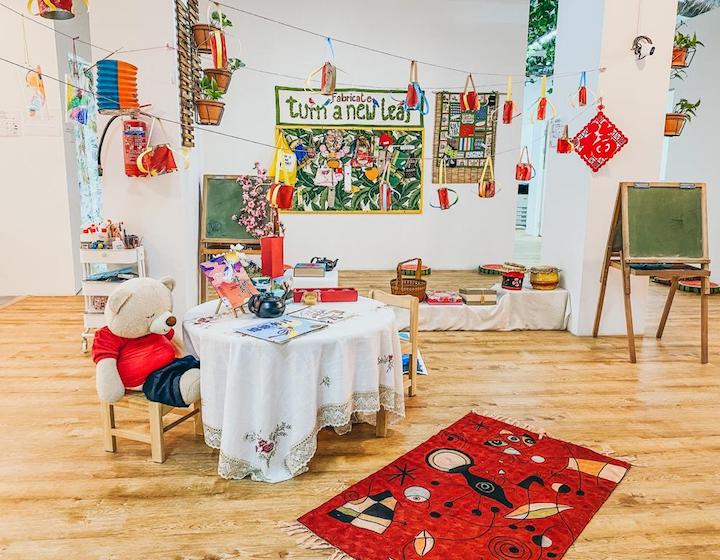
At MapleBear West Coast we observe children’s social, emotional, and self-regulatory development and discuss our observations with parents in situations such as if the child has extreme separation anxiety or seems sad or withdrawn, fearful, or overly aggressive. Other warning signs include a loss of previously achieved social skills, the inability to concentrate on a single activity, or the inability to distinguish fantasy from reality or follow simple directions. In certain instances we may suggest early intervention for a social or emotional delay.
How can parents support children in becoming more independent?
Firstly, parents need to be aware that social-emotional and self-regulation development affects every aspect of a child’s life, including personal relationships, academic growth, and self-esteem. When children feel good about themselves and have the skills to interact successfully with others, their capacity to achieve skyrockets.
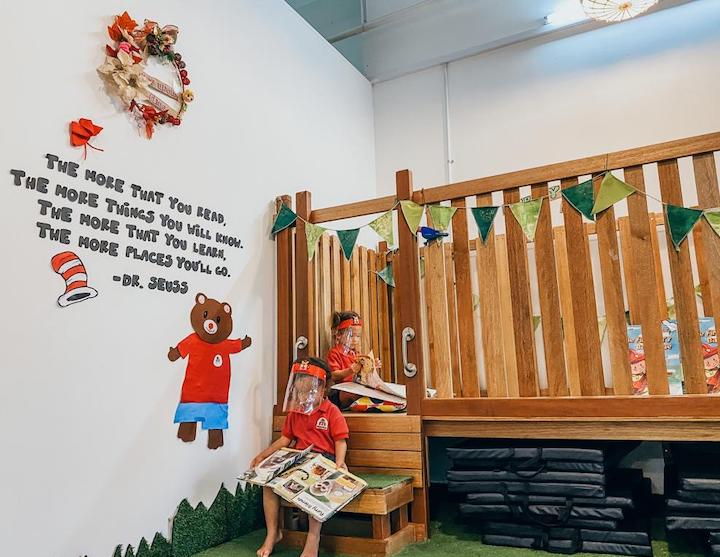
Secondly, parents need to role model a growth mindset and build their children’s self-confidence as they begin to help themselves. For example if a child wants to fix a broken toy, instead of saying “This is too hard for you,” say “This is really hard for Papa too. Let’s try it together,” and instead of “You can’t do this,” go with “You haven’t learned how to do this yet.”
Read more: Why a good parent-teacher relationship makes for a better learning experience for your child
Thirdly, parents need to accept that children will make many mistakes as they try to become independent. Therefore, parents can try talking about their own mistakes – even parenting mistakes – and what was learned from them. Instead of praising your child for a seemingly permanent characteristic “You are so smart”, praise the effort they put into it “You worked really hard to solve that problem.” The first is known as people praise; the second is process praise. Process praise promotes an internal sense of self-efficacy because it reinforces that successes are due to effort (which the child can control) rather than some pre-determined level of talent or skill.
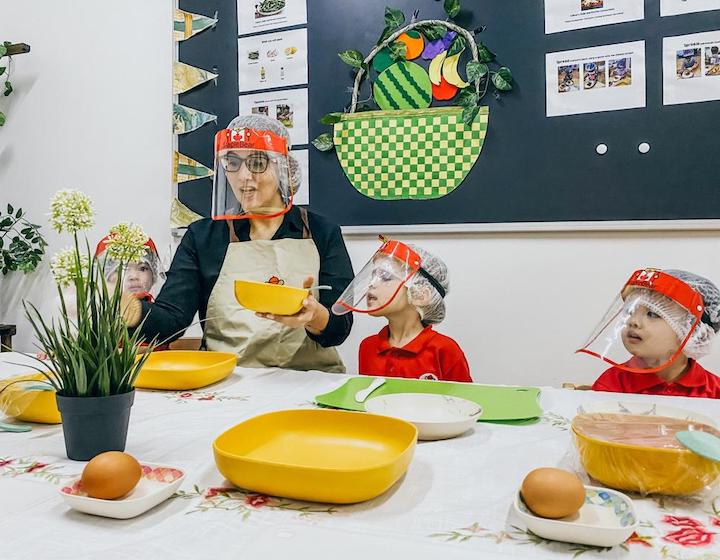
Lastly, parents should involve their children in daily domestic activities like gardening, taking care of a pet, cooking, washing and tidying up. There should be a regular or predictable daily schedule of chores and tasks. By showing children how to wear shoes, lay the table and make beds, parents can enjoy the process of supporting their independence. Additionally, they can provide more open-ended, self-directed and purposeful play through picnics, cycling, painting, handicraft making or building Legos.
We hope these tips will help you support your child in becoming more independent at school and at home. If you’d like to be in touch with MapleBear to look around their West Coast campus (or any of their 43 locations) be in touch to book a tour!
MapleBear, 1-57/58, 1 West Coast Drive, Singapore 128020, Tel: (+65) 9477 9420, [email protected] m.facebook.com/MapleBearWestCoast, www.maplebear.sg/westcoast






 View All
View All
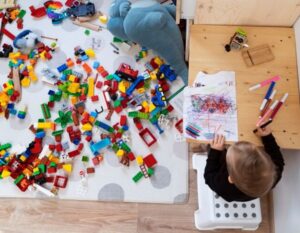



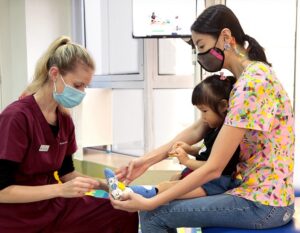
 View All
View All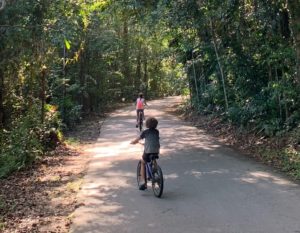






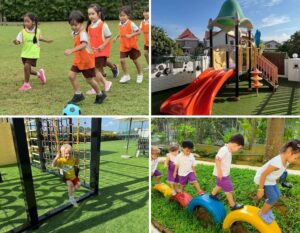



 View All
View All

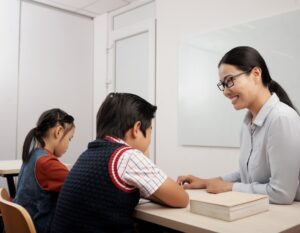
![[𝗛𝗢𝗧 𝗡𝗘𝗪𝗦] 𝗦𝗲𝗻𝗴𝗸𝗮𝗻𝗴 𝗦𝘄𝗶𝗺𝗺𝗶𝗻𝗴 𝗖𝗼𝗺𝗽𝗹𝗲𝘅 𝗶𝘀 𝗕𝗔𝗖𝗞 𝘄𝗶𝘁𝗵 𝗡𝗘𝗪 𝗦𝗟𝗜𝗗𝗘𝗦 & 𝗙𝗘𝗔𝗧𝗨𝗥𝗘𝗦! 💦🔥
One of the most popular pools in the North-East is finally back and it’s even better than before! Brand-new slides for thrill-seekers (1.2m+), splash zones for little ones, a Jacuzzi, sheltered teaching pool, and an Olympic-sized pool for serious swimmers.
Say goodbye to the rainbow slides as the new ones are faster, wider & way more fun! Just remember: proper swimwear only, and no accessories for max sliding speed.
𝗪𝗵𝗲𝗿𝗲: 57 Anchorvale Rd, Singapore 544964 (5 mins from Sengkang LRT)
𝗪𝗵𝗲𝗻: Tues/Thurs/Sat: 6.30am – 9.30pm | Wed/Fri/Sun: 8am – 9.30pm | Mon: Closed
𝗛𝗼𝘄 𝗺𝘂𝗰𝗵: Family of 4 (weekend) = Just $7!
Tag your splash squad & get ready for a wave of fun! 🏄♂️
.
.
.
.
.
.
.
#SengkangSwimmingComplex #SGPools #FamilyFunSG #WaterPlaySG #NorthEastLiving #SengkangReopens #KidsActivitiesSG #SengkangFun #publicswimmingpool](https://www.sassymamasg.com/wp-content/plugins/instagram-feed/img/placeholder.png)
